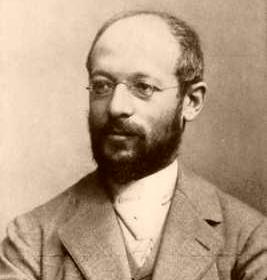
Credits, references, and bibliography

"Georg Simmel's sociological theorizing was chiefly concerned with forms of association that serve to link people to one another. He argued that people regularly simplify the world into a limited number of forms of interaction and types of interactants. Humans are able to continually develop new forms and types because they are endowed with a creative consciousness. This creative consciousness allows people to overcome limits imposed by external structures, but it can also impose limits on action when it reifies the social world. Simmel was also interested in the way that group size affects everyday interactions. He believed that the most important group differences are observed between two-person (dyad) and three-person (triad) groups. It is with the addition of a third group member that objective social structures can emerge and control individual behavior. Moreover, Simmel was interested in the issue of social distance. He analyzed the "stranger" as an important social type that is defined by its combination of closeness and distance. As an alternative to Marx's labor theory of value, Simmel argued that value is a function of an object's distance from a person. Thus, objects that are further away from a person acquire greater value for that person. Finally, Simmel developed a less well known sociological theory of space that revealed the importance of indefinite boundaries and indistinct spaces to group impulsiveness."(1)
"Georg Simmel's is best known for his analysis of what he called the tragedy of culture. In order to understand Simmel's idea, one must first grasp his distinction between objective and subjective culture. Objective culture consists of the objects that people produce in the realms of science, philosophy, art, etc. Subjective culture is the capacity of individuals to produce, absorb, and control the elements of objective culture. The tragedy of culture occurs when the growth of objective culture outpaces the growth of subjective culture. An increasing division of labor both drives the growth of objective culture and forces individuals to specialize. The consequence of this growth of objective culture and specialization is that individuals are unable to grasp the totality of objective culture and are unable to control it."(1)
Georg Simmel discussed the sociological importance of everyday activities such as keeping secrets and telling lies.
Go to http://www.nodeception.com/home.jsp (the site seems to be gone--use the Way back machine: http://web.archive.org/web/20061205192645/nodeception.com/home.jsp
This is the home page for "noDeception.com-the Internet's #1 authority on lying." Click on the button for "articles" (on the left side of the screen) and then click on the article entitled "Lies, lies, and more lies!" by Rana Haddad. (http://web.archive.org/web/20050903172435/www.nodeception.com/articles/lieslies.jsp; or local copy)
a. Give two reasons, according to this article, that a person might lie to another person.
b. Would Haddad agree with Simmel's argument that lies are an important part of our lives? If so, are lies important to Haddad and Simmel for the same reasons?
Next, click on the article "The Decay of Lying" by Mark Twain. Read the first two paragraphs.
c. What is Twain's complaint?
d. Would Twain agree with Simmel that lies are an important part of our lives?
Websites:
http://socio.ch/sim/index_sim.htm
An extensive website maintained by "Sociology in Switzerland." Much of the page is written in German, although there are English biographical materials, and translations of five of Simmel's most important essays.
Georg Simmel: The Sociology of Space
http://www.csiss.org/classics/content/75/
An extended summary of Simmel's contributions to the sociology of space and short bibliography by David Fearon on the site of Center for Spatially Integrated Social Science.
Credits, references, and bibliography
1.
Much of this page comes from the "Instructor's Manual" to accompany Contemporary
Sociological Theory and Its Classical Roots: The Basics, Second Edition,
George Ritzer, Mcgraw-Hill, 2007. The Instructor's Manual was prepared by James
Murphy, University of Maryland, College Park and Todd Stillman, Fayetteville
State University. These quotes come from chapter 3.
2. Ritzer, George. 2007/2010/2013. Contemporary Sociological Theory and Its Classical Roots: The Basics. 2nd/3rd/4th editions. St. Louis: McGraw-Hill
![]()
Unless otherwise noted, all pages within the web site http://www.umsl.edu/~keelr/ ©2015 by
Robert O. Keel.
Click here to Report Copyright Problems